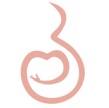Iron deficiency and Treatment: What you must know
- Dr Tan Thiam Chye

- Nov 19, 2024
- 1 min read
Updated: Jan 23, 2025
Pregnancy SG supports Iron Deficiency Day on 26 November.
Iron is one of the most important elements in our body. It plays an essential role to ensure brain function and development, optimize our immunity as well as aid in energy. Our red blood cells also use iron to build hemoglobin for delivering oxygen in the body.

Iron deficiency occurs due to insufficient iron supply to meet the body’s demand. In late stage, anaemia happens and severe anemia can be life-threatening as it leads to heart
failure.
In southeast Asia, 20% of women (age 15- 49) suffer from iron deficiency, usually from a lack of iron. Commonly, this is due to poor iron intake (such as vegan diet) or heavy periods. Signs of iron deficiency include weakness, fatigue, difficulty in concentrating, insomnia or brittle hair and nails.
Diagnosis and Treatment
A blood test is needed to diagnose. A low ferritin level <30μg/L indicates iron deficiency and a haemoglobin <12 g/dl suggests anaemia.
Treatment involves dietary intake of food rich in iron (such as spinach, broccoli, red meats and liver) and iron supplements.
For mild deficiency, oral iron supplement is sufficient. In severe iron deficiency anaemia, intravenous iron infusion is recommended. Intravenous infusion is fast replacement with no gastrointestinal side-effect such as constipation.



